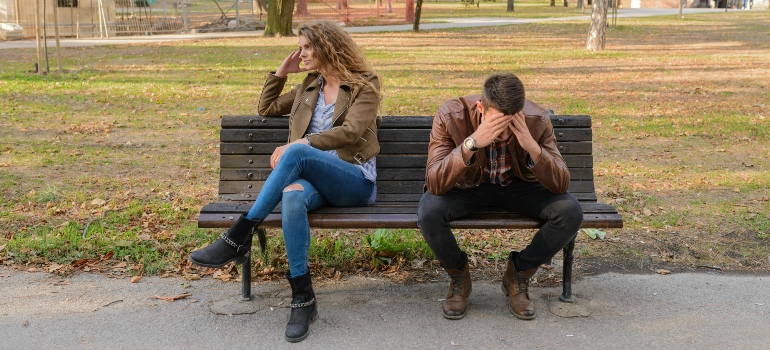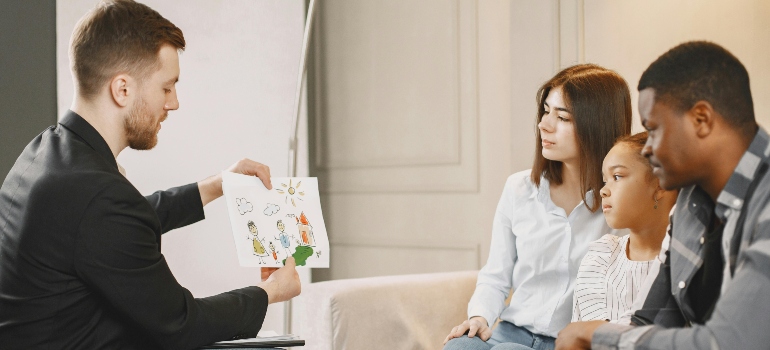Harmony Ridge Recovery Center wants to uncover the complexities of substance use in couples who use drugs together. It’s a topic that impacts many relationships, yet it’s not always easy to talk about. We’ll focus on why couples might use drugs together and the psychological factors at play. Our goal is to provide a clear understanding of this issue and offer insights to help those affected navigate through it. Let’s embark on this journey with empathy and a desire to learn more.
What Is Co-occurring Substance Abuse Among Couples?
Co-occurring substance abuse among couples occurs when both partners engage in drug use, whether it’s:
- alcohol abuse
- marijuana use
- prescription drugs abuse
- cocaine use
- stimulant abuse
- other substances
It’s a dynamic where both individuals participate in substance use behavior either simultaneously or in close proximity to each other.

The reasons behind this behavior are various. Some couples may find themselves drawn to substance use as a means of bonding or escaping from life’s challenges together. In certain cases, one partner’s drug use may influence the other to join in, creating a shared activity or coping mechanism. Additionally, environmental factors, such as living in a community where drug use is prevalent or being part of social circles where substance use is normalized, can contribute to this pattern.
Co-occurring substance abuse among couples is common. Research indicates that substance use within relationships is a widespread phenomenon affecting couples across diverse demographics. This means that it is crucial to understand the dynamics at play and the potential impact on the individuals involved, their relationship dynamics, and their overall well-being.
Patterns and Outcomes of Shared Substance Use among Couples Who Use Drugs Together
The patterns and outcomes of shared substance use among couples who use drugs together can vary widely. Some couples might use drugs occasionally for recreation or to relax, while others may develop more frequent and intense patterns of drug use. These patterns can impact the dynamics of the relationship in different ways. For example, shared substance use might initially bring the couple closer together, creating a sense of camaraderie or adventure. However, over time, it can also lead to conflicts, dependence, and negative consequences for both partners. These outcomes can include financial strain, health problems, legal issues, and damage to the emotional bond between the couple.
Psychological Factors Contributing to Co-occurring Substance Abuse
Psychological factors play a significant role in co-occurring drug addiction among couples. One key factor is stress. Couples may turn to drugs as a way to cope with the pressures of daily life, such as work stress, financial worries, or relationship conflicts. For example, if a couple is going through a rough patch in their relationship, they might use drugs together to numb the pain or escape from their problems temporarily.

Another factor is the influence of social circles and peer pressure. Couples who have friends or family members who use drugs may be more likely to engage in substance abuse themselves. This can create a social environment where drug use is normalized and even encouraged. For instance, if a couple’s friends regularly use drugs at social gatherings, they may feel pressure to join in to fit in with the group.
Additionally, underlying mental health issues can contribute to co-occurring substance abuse. For example, individuals struggling with depression, anxiety, or trauma may use drugs as a way to self-medicate and alleviate their symptoms. If both partners in a couple are dealing with mental health issues, they may be more inclined to use drugs together as a way to cope with their shared challenges.
Furthermore, relationship dynamics can also influence co-occurring substance abuse. For instance, couples who have poor communication skills or unresolved conflicts may turn to drugs as a way to avoid dealing with their issues. Substance abuse can also exacerbate existing problems in the relationship, leading to a cycle of dysfunction and dependency.
Risk Groups
Certain couples are more vulnerable to co-occurring substance abuse, putting them at higher risk of becoming addicted or facing serious consequences. They include:
- Younger couples may face unique challenges such as peer pressure, impulsivity, and a lack of experience in managing stress, which could increase their risk of co-occurring substance abuse.
- Some ethnic or cultural groups may have higher rates of substance abuse due to various social, economic, and historical factors. However, substance abuse within couples can occur across all ethnic and cultural backgrounds.
- Traditional gender roles and expectations may influence substance abuse patterns within couples. For example, societal pressures for men to exhibit “macho” behavior or suppress emotions could contribute to substance use as a coping mechanism.
- LGBT individuals and couples, as research suggests, may face unique stressors related to discrimination, societal stigma, and internalized homophobia, which could increase their risk of substance abuse. Therefore, LGBT couples may be more likely to experience co-occurring substance abuse compared to heterosexual couples.
The Role of Social and Environmental Factors
Social and environmental factors encompass a wide range of influences that shape couples’ experiences with substance abuse. One significant aspect is the influence of peers, friends, and family members. The social circles that couples are part of can strongly influence their attitudes and behaviors regarding drug use. If their friends or family members engage in substance abuse, it may normalize the behavior and make it more likely for the couple to follow suit. For example, if a couple spends time with friends who frequently drink alcohol or use drugs, they may feel pressure to join in or may view substance use as a typical way to socialize or cope with stress.

Moreover, the broader community environment can also play a role. Living in areas where drug availability is high or where there’s a prevalence of substance use can increase the likelihood of couples engaging in drug use. Communities with limited access to resources for addressing substance abuse issues, such as addiction treatment programs or mental health services, may struggle to provide adequate support for couples facing substance-related challenges.
Additionally, societal norms and cultural beliefs about substance use can influence couples’ perceptions and behaviors. In some cultures or communities, alcohol or drug use may be more socially accepted, while in others, it may be stigmatized or taboo.
The Impact of Co-occurring Substance Abuse on Relationship Dynamics
Co-occurring substance abuse can have a significant impact on the dynamics of a relationship between couples. One aspect to consider is the role of mutual drug use in bonding and conflict within the relationship.
On one hand, sharing the experience of drug use together can create a sense of closeness and camaraderie between partners. For some couples, using drugs together may be seen as a way to bond or have fun, creating shared memories and experiences.
However, this shared drug use can also lead to problems. For example, if one partner starts using drugs more often or differently than the other, it might cause tension. They might argue about how much or how often to use or about the consequences of their drug use. Sometimes, substance abuse can even make existing relationship issues worse, leading to fights or misunderstandings. So, while using drugs together might seem like a way to connect, it can also bring about conflicts that strain the relationship.
The Effect of Joint Substance Abuse on Parenting and Family Dynamics
Joint substance abuse within a couple can have profound effects on parenting and family dynamics. When both parents are involved in substance abuse, it can compromise their ability to fulfill their parental responsibilities effectively. For instance, if one or both parents are under the influence of drugs, they may struggle to provide a safe and nurturing environment for their children. This can lead to neglect or inadequate supervision, putting the children at risk of harm.
Furthermore, substance abuse can contribute to instability within the family unit. Financial resources may be diverted toward purchasing drugs, leaving less money available for essential needs such as food, clothing, and housing. This financial strain can create tension and conflict within the family, making the existing challenges worse.

Additionally, substance abuse can impact the emotional well-being of both parents and children. Children may experience feelings of confusion, fear, or abandonment if their parents prioritize drug use over their needs. Witnessing parental substance abuse can also increase the likelihood of children developing their own substance abuse issues later in life.
Moreover, substance abuse can disrupt family routines and dynamics. For example, unpredictable behavior resulting from drug use can create an environment of instability and insecurity for children. This can affect their emotional development and ability to form healthy relationships in the future.
Treatment and Recovery Options for Couples Who Use Drugs Together
Rehab centers in West Virginia offer various options to support couples in overcoming drug use:
- Intensive Outpatient Program (IOP): IOPs provide structured treatment sessions several times a week while allowing couples to live at home. This option offers flexibility for those who need intensive support but wish to maintain their daily routines.
- Residential Treatment: Residential treatment facilities in WV involve couples staying at a specialized facility for a specified period, typically ranging from a few weeks to several months. They receive round-the-clock care, including therapy, medical support, and skill-building activities.
- Outpatient Therapy: Outpatient therapy involves couples attending therapy sessions at a treatment center on a regular basis, typically once or twice a week. This option allows couples to receive ongoing support while continuing with their daily responsibilities, such as work or caregiving.
- Couples Therapy: Couples therapy focuses on improving communication, resolving conflicts, and rebuilding trust within the relationship. Therapists help couples explore the impact of drug use on their relationship and develop strategies for supporting each other’s recovery.
Recovery centers also offer a range of therapy options tailored to couples struggling with drug use. These options include:
- Individual therapy for addiction, where each partner receives personalized support to address their unique challenges and motivations for substance use.
- Group therapy for addiction, which provides a supportive environment where couples can connect with others facing similar struggles, share experiences, and learn from each other.
- Holistic therapy for addiction, which includes mindfulness practices, lifestyle changes, and recreational activities.
Strategies for Prevention and Early Intervention
Prevention and early intervention strategies are key in addressing drug use among couples. One effective approach is education, which involves providing information about the risks of drug use, healthy coping mechanisms, and the importance of seeking help from drug rehab centers in WV early.
Additionally, promoting healthy relationship skills, communication techniques, and stress management strategies can help couples navigate challenges without turning to drugs.

Creating supportive environments and fostering community connections can also provide couples with the resources and social support needed to resist drug use and seek help when needed. Finally, offering accessible and confidential screening and intervention services can identify drug use issues early on, allowing couples to receive support and substance abuse treatment in WV before problems escalate.
Understanding Substance Abuse in Couples
In exploring the psychology behind co-occurring substance abuse among couples who use drugs together, we uncover complex dynamics and challenges. It’s clear that various factors, including individual vulnerabilities, relationship dynamics, and environmental stressors, can influence substance use within relationships. But by understanding these underlying mechanisms, we gain insight into how substance abuse develops and persists within couples. Moving forward, it’s crucial to approach this issue with empathy, recognizing that couples struggling with substance abuse require support and intervention tailored to their unique circumstances. By addressing both individual and relational factors, we can work toward promoting healthier behaviors and relationships among couples affected by substance abuse.



